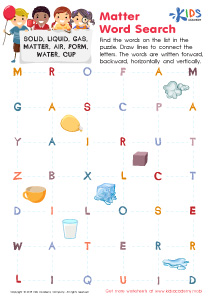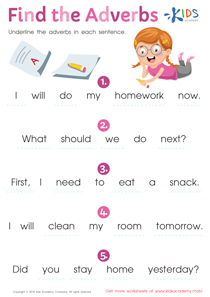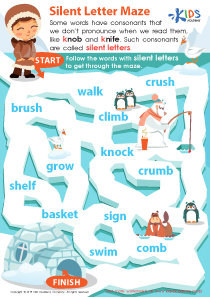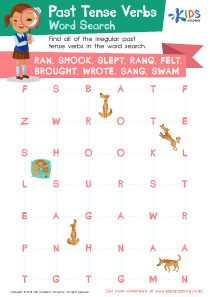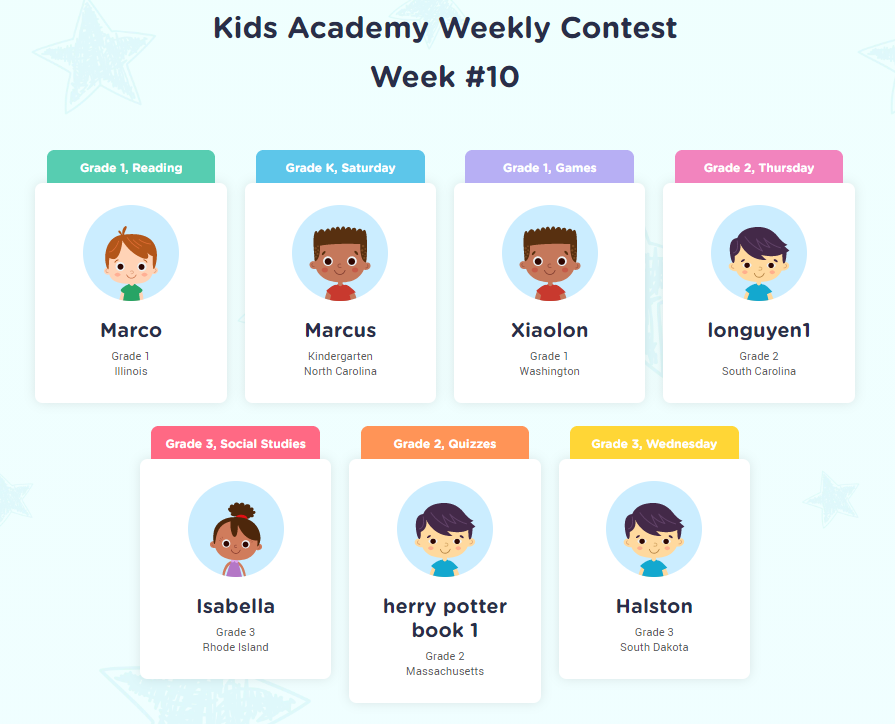Alphabet Quizzes for Ages 3-4
8 results
8 filtered results
Clear all filters8 filtered results
-
From - To
Introducing our vibrant and engaging Interactive Alphabet Quizzes, meticulously designed for curious learners aged 3-4! Dive into a colorful journey of letters, where each quiz not only checks but nurtures your child's budding knowledge of the alphabet. With every attempt, children receive constructive feedback, encouraging them to learn and grow. Our quizzes are crafted to captivate young minds, turning the learning process into an exciting adventure. Perfect for preschoolers, these quizzes promise a fun, interactive way to reinforce their understanding of the alphabet, ensuring a solid foundation for their literacy skills. Join us in making learning a delightful experience with our Alphabet for Ages 3-4 quizzes!
Interactive quizzes on the Alphabet for Ages 3-4 offer a dynamic and engaging approach to early childhood education. In a crucial stage of development, children are naturally curious and eager to explore the world around them. Learning the alphabet is foundational for reading and writing, and incorporating interactive quizzes into this learning process can significantly enhance the educational experience for young learners.
One of the key benefits of these interactive quizzes is that they cater to the unique learning pace and style of each child. At the ages of 3 and 4, children are at varying levels of recognition, memorization, and comprehension. The adaptability of interactive quizzes allows children to learn at their own pace, ensuring that they are neither overwhelmed by too much information nor bored by a lack of challenge. This personalized approach helps maintain their interest and motivation, making the learning process both enjoyable and effective.
Moreover, the quizzes are designed with vibrant colors, characters, and animations, which are especially appealing to children in this age group. These engaging elements capture their attention and make learning the alphabet a fun and exciting adventure. By transforming education into a game, children are more likely to participate actively and retain the information they learn. This method of learning through play is widely recognized as an effective educational strategy, particularly for young learners.
The interactive nature of these quizzes also promotes cognitive development beyond just memorizing the alphabet. Children are encouraged to think critically as they solve puzzles, match letters with sounds, and complete the quizzes. This not only reinforces their knowledge of the alphabet but also develops their problem-solving skills, attention to detail, and memory recall. These cognitive skills are foundational for academic success and will benefit children across all areas of their education.
Furthermore, the feedback mechanism inherent in interactive quizzes is immediate and constructive, allowing children to understand their mistakes and learn from them. This instant feedback helps to build their confidence as they see their progress in real time. It also provides parents and educators with insights into the child’s learning journey, enabling them to offer additional support where necessary.
Interactive quizzes on the Alphabet for Ages 3-4 also facilitate an early love for technology. In an increasingly digital world, introducing children to educational technology from a young age can help them become tech-savvy and comfortable with using digital tools for learning. This early exposure can make them more adept at navigating the digital landscape in their future educational endeavors.
In conclusion, interactive quizzes on the Alphabet for Ages 3-4 are not only an effective tool for teaching young children the basics of reading and writing but also a means of fostering a love for learning. By combining education with entertainment, these quizzes ensure that children are engaged, motivated, and constantly challenged, setting a solid foundation for their future academic success. As such, they are an invaluable resource for parents and educators looking to enrich the educational experience of their young learners.

